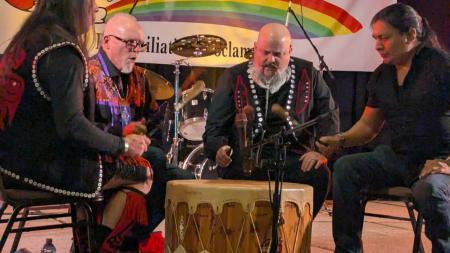It's Complicated

Recent media coverage about abortion laws has prompted questions from our community about how the Office of Social Justice (OSJ) can support churches and individuals on the issue of the sanctity of human life. Our regular engagement in this area and our denomination’s position statements about abortion all show deep care for unborn children. As we we seek justice for them, this conversation is made more complicated by the research that shows that women don’t have abortions simply because they are legal.
We consistently advocate for laws and policies that are pro-life, in the fullest sense. As the Supreme Court examines the Mississippi law banning abortions after 15 weeks gestation and the potential for this to change the 1973 decision, Roe v. Wade, we are hopeful for changes that show value for life at every stage of development. Yet we know that overturning Roe v. Wade or introducing new polices limiting abortions does not result in a cultural shift that supports women facing unplanned pregnancies before they come to abortion as a last resort in a long, excruciating journey of panic, isolation and shame. Some data may support the practice of providing better supports for expectant mothers as an excellent way to protect the unborn.
We also know that abortion impacts people in our churches. Four out of 10 women who have abortions are regular church goers, but only 7 percent of them talk to anyone at their church before making their decision. (ProGrace). When the church is not a place where women feel they can seek support, we participate in making life less safe for unborn children and their mothers.
OSJ MandatesSo what can we do to be holistically pro-life as the OSJ (mandated by synod), as the CRC denomination, and as Christians? We pursue advocacy opportunities within our purview, recognizing some of the following limitations. Primarily, it is not possible to advocate as a citizen before the Supreme Court. Also due to our team size we do not focus on state level advocacy but rather national advocacy.
However, we recognize that this is an issue of great importance to the Church especially as it arises in the news. Because a decision on the Mississippi law and other abortion-related cases will take months, questions about supporting unborn children and their mothers will surface repeatedly in the coming weeks and months. We encourage you to think about how you can respond as a Christian to support babies as well as expectant mothers. Check out the resources below and consider how you can show your holistic support for life.
Resources:- Pray
-
Worship
- Prepare for Sanctity of Human Life Sunday in January. You can order bulletin inserts and use worship materials to consider this topic as a congregation.
-
Support
- Studies have found the majority of people who seek abortions in Canada and the U.S. tend to be mothers older than 20. Despite above-average levels of education, they live below the poverty line. In the U.S., nearly 2/3 of women who had an abortion report a Christian faith background. The same percentage say they could not afford another child. Because of statistics like these we know that practical support helps women to see the options available to them.
- Check out our map of pregnancy resource centres. Can you give financially? Can you give time?
-
Advocate
- While we can’t advocate before the Supreme Court, we can advocate for holistic care for women and babies through various means including the bi-partisan Pregnant Workers Fairness Act. Advocate using our action alert here.
- Young children are more likely than any other group in the U.S. to experience hunger and poverty. The Child Tax Credit can do a lot to support low-income families. Join us in urging Congress to address childhood poverty and permanently expand the Child Tax Credit.
-
ProGrace
- The organization ProGrace works to create a new narrative around abortion. This organization wants to see “Christians extend grace and support to pregnant women rather than participate in arguments that pit the woman against the child.” Consider how you can be a part of this approach.
Photo by Maria Oswalt on Unsplash




